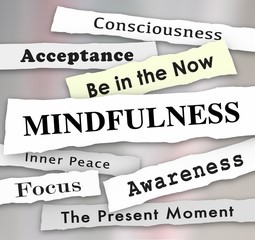
By: Samantha Ruda, Mental Health Counselor
Around noon on Monday August 24th 2020, my Fitbit kindly informed me that I had taken 10,000 steps without even leaving my property! Now, you may be wondering what crazy at-home core dance booty-busting workout program I had done that morning that had led to such an achievement, and I must tell you, it was none. I got those steps in purely by running from room to room between my fifth grader and my kindergartener who were both attending their first days of the school year remotely via Zoom. Meanwhile, my two-and-a-half-year-old, desperate for attention, was pulling things out of kitchen cabinets and declaring every two and a half minutes that he needed a snack while trying to climb the shelves in my refrigerator.
Picture if you will, a mom who had managed to provide her children with a hearty breakfast on their first day, who had made sure they had dressed and brushed their teeth (those things have become more optional since then if I’m honest), who had posted the obligatory adorable first day of school pictures to social media, and who had set said children up for success at their respective learning stations, hoping and praying everything would go smoothly. Meanwhile, I spent the morning in pajamas, with un-brushed hair in a pineapple like bun formation (I would like to point out that I HAD brushed my teeth because a girl has to have some standards) running from room to room responding to shouts of “I need help!” “Schoology isn’t working!” “Mama, where’s my red folder?” and “I don’t understand this math.”
It has been almost three weeks since that first day, and while we have definitely found a flow to our days since then (I cannot say that my being showered and dressed before school starts has become a part of that flow), I am exhausted! Mentally and physically drained. I am scheduler, snack giver, meal maker, tech person, laundry lady, drill sergeant, hug provider, advocate, and cheerleader, all while attempting to fit my own work schedule around my role as a mother.
My fellow moms, how are you doing? Really. How are you balancing life, work, and family during this crazy time? Are you expecting miracles from yourselves? Are you expecting top academic performance from your children? Are you questioning if you are “good enough?” I would like to invite you to stop. I would like to offer you the space to give yourselves permission to take a long deep inhale and exhale and take expecting miracles off the table. Did you take that breath? I would like to invite you to recognize that if you are asking yourself if you are good enough, that very likely means that you are good enough and more.
It is ok that you are tired. It is ok that you are overwhelmed. It is ok if you simply can’t give 100 percent every day. It is understandable if you are feeling like you can’t keep up. Having our children attend school from home may not feel natural to many of us. And it is challenging. Whether you are a stay at home mom, a full time working mom, or anything in between, a global pandemic was very likely not on your list of expectations this year. So again, I invite you to acknowledge how hard this is, and to give yourself the validation you deserve. How can you meet yourself right where you are? What can you let go of in this moment? Take another deep breath, release the tension you didn’t even realize you were holding in your body and repeat after me, “I am good enough.”

Know that if you are struggling right now, you are definitely not alone. According to a recent survey by lifestyle brand Motherly, 74% of U.S mothers say they feel worse mentally since the pandemic began (Conley, 2020). And in an article reflecting on how the pandemic has influenced the already stressful role of modern motherhood, Güney‐Frahm (2020) states that “There is anecdotal evidence from across the world that women’s unpaid care‐related duties increased during the lockdown. Among other things, women had to cook and clean more and take care of home‐schooling as well as the children’s psychological wellbeing.”
She continues that on top of mothering, there are other expectations placed on women such as staying fit and healthy and using lockdown as an opportunity to find more time to exercise using apps or online fitness programs. And the messages often found on social media about using this time to grow and improve only compounds that pressure. Before Covid, mothers were under a lot of pressure to have it all, and maintain a standard of beauty. And, as Güney‐Frahm (2020) adds “COVID‐19 has deepened existing problems with respect to gender equality. An additional element has emerged in the image of the modern, powerful woman who can have both a family and career and look sexually attractive. Nowadays, she is also expected to be resilient, in charge of organization of the family’s daily life during exceptional circumstances.”

So, how can we begin to dial down some of the stress and tension we are dealing with? Mindfulness is a word that you may be familiar with, and something you may have even practiced. For many though who are unfamiliar, there may be a misconception that being mindful must include long drawn out meditations, or that it means spacing out, or deep relaxation. If for you the term mindfulness conjures up images of blissed out people in scenic surroundings napping on yoga matts, it’s completely understandable that you may think can’t possibly fit such a practice into your already busy life. But simply put, mindfulness is really about being present in the moment, of being aware and noticing without the need to fix or judge. Cultivating the nonjudgmental awareness of our experiences in the present moment can help to reduce stress and improve wellbeing (Holzel, et al., 2011). Mindfulness can help with improving attention, awareness of what’s happening in our bodies, emotion regulation, and our perceptions of ourselves. So, what are some ways you can begin to incorporate mindfulness into your daily routine?
- Notice without judgment – often when we have thoughts or feelings our inclination is to judge them, or do something to solve them or push them away. Noticing what we are thinking or feeling without judgement removes the burden to fix everything in the moment.
- Respond versus react – how many times do you find yourself feeling overwhelmed when your child is melting down and yelling in response? This may be because seeing your child in pain creates anxiety for you. Stop, pause, take a breath, and ask yourself how you can respond rather than reacting in a knee jerk way. Not only will this help you to refocus, but it will provide good modeling for your children on how to regulate their emotions. (As an aside, try not to beat yourself up when you do lose your temper in the moment. You are only human. Take it as a learning experience. Forgive yourself and move on.)
- Meditation – I realize this is a hard one to consider, given how little time you may have in your busy schedule. But a meditation can be as short as a few minutes. You don’t have to be sitting cross legged and chanting. You can meditate while you are taking a walk, or sitting at your desk. Observe what is happening internally and externally. Check in with your body. What sensations are you experiencing? Again, don’t judge the sensations. Notice them. What’s happening for you? You don’t have to solve or explain anything in this moment. There are apps that can provide you with easy meditations such as a body scan that can be as short as five minutes, such as Calm or Headspace.
- Treat yourself with loving kindness – Meet yourself where you are. Every day is not going to be your best day. Give yourself permission to be ok with that. What can you do for yourself in the moment? Whether for you it’s a cup of tea, or getting outside when you can, recognize what you need and find small ways to nurture yourself.
- Acceptance – What is not within your control right now? How can you accept it? It’s a common misconception that accepting something means you must like or approve of it. That’s not accurate. You can accept the current circumstances even if you don’t like them. Acceptance can be a powerful tool in relieving stress. When we accept something fully, we are no longer burdened with trying to change what is not within our control.

The stress experienced by mothers during the time of Covid can may be extremely overwhelming. If you find you are experiencing long term symptoms that are affecting your daily functioning such as persistent low mood, lack of motivation, changes in sleep and eating, or symptoms of panic and anxiety, seek out help from your primary care doctor or a mental health professional. And most of all, be kind to yourself and repeat after me “I am good enough.”
References:
- Conley, C (2020, May 10) How Covid-19 is impacting the mental health of millennial moms. CNBC (www.cnbc.com)
- Güney‐Frahm, Irem. “Neoliberal Motherhood during the Pandemic: Some Reflections.” Gender, Work, and Organization 27.5 (2020): 847-56. DOI: 10.1111/gwao.12485
- Hölzel, B. K, Lazar, S.W, Gard, T. S-O, Zev, V, David R, and Ott, U. “How Does Mindfulness Meditation Work? Proposing Mechanisms of Action from a Conceptual and Neural Perspective.” Perspectives on Psychological Science 6.6 (2011): 537-59. DOI:10.1177/1745691611419671
https://www.psychologytoday.com/us/therapists/samantha-ruda-wauconda-il/775502
